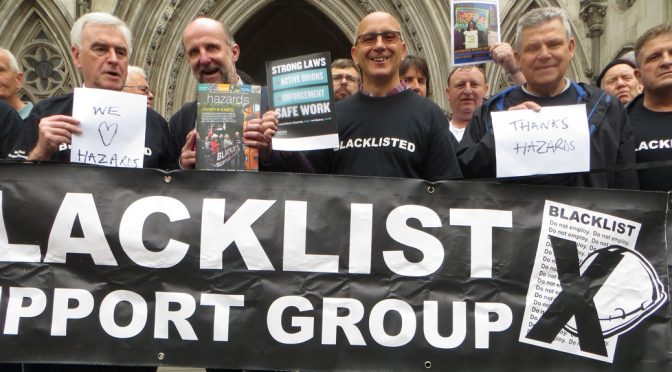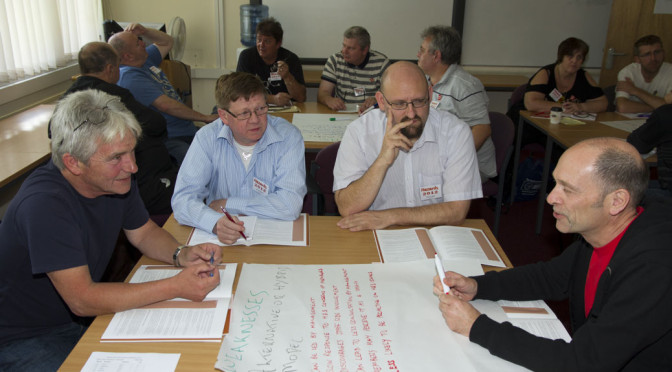Hazards 2017 Programme – Organising health, safety and welfare in an insecure world
Friday 28th July
13.00 – 19.30 Delegates arrival and Registration
Choose and sign-up for ONE Saturday Campaign meeting at Registration Listed here.
17.00 – 19.30 Evening Meal
19.30 – 21.00 Opening Plenary in Westminster Theatre
Chair: Doug Russell, USDAW; opening remarks Speakers: Janet Newsham, Hazards Campaign: Welcome and Conference arrangements; Jessica Martinez, Director National COSH, USA; Dan Shears, GMB; Tracey Seward, FACK; Mick Lancaster GMB/FACK
Saturday 29th July
07.30 – 9.00 Registration for later arrivals/non-residential delegates
07.00 – 08.45 Breakfast
09.00 – 10.30 First Workshop Session
10.30– 11.00 Tea/Coffee Break
11.00 – 12.30 Second Workshop Session
12.30 – 14.00 Lunch
14.00 – 15.45 Three Meetings
- Challenging the individual therapy view versus collective action to prevent work causing mental ill-health
Chair: Hugh Robertson, TUC; Speaker: Paul Maloney, Psychologist, author of ‘The Therapy Industry’
- Towards zero work-related cancer Chair: Kathy Jenkins, Scottish Hazards; Speakers: Helen Lynn Alliance for Cancer Prevention; Susan Murray UNITE
- Using new methods of organising on health and safety Chair: Janet Newsham, GM Hazards Centre; Speakers: Barry Faulkner, UNITE; Gareth Lane BFAWU; Michael Newman, Leigh Day; Bryan Simpson, Better than Zero.
15.45 – 16.00 Tea/Coffee Break
16.00 – 17.30 Campaign Meetings – Room allocation signs are displayed at Registration
19.00 – 20.30 Dinner
Sunday 30th July
07.30 – 09.15 Breakfast
Clear rooms- bring cases to secure room in registration area
10.00 – 12.00 Closing Plenary in Westminster theatre
Chair: Hazards Campaign: ‘Enough is Enough: End deregulation now !
Speakers: Matt Wrack, General Secretary, FBU, Hazards Campaign; Others tbc;
12.00 – 13.30 Packed Lunch – eat with us or take away & depart
Don’t forget to complete an evaluation form and leave it at registration.
27th to 29th July Hazards 2018 at Keele University
Leave a self-addressed envelope at registration to be kept informed.
And check on Hazards Campaign website: http://www.hazardscampaign.org.uk #Haz2017
29 July Campaign Meetings 16.00 – 17.30
Choose ONE and then Sign up at Registration
- Internnal solidarity to combat attacks on workers; lives and health
Main health and safety problems facing workers worldwide including Brexit, CETA and the alphabet soup of other toxic ‘free trade;’ treaties Developing Global Occupational Safety and Health Networks GOSH to fight back.
Chair: Kathy Jenkins, Scottish Hazards; Speakers: Jessica Martinez, USA National COSH
- Campaigning against Asbestos in schools, in all workplaces, in UK and globally
Update on campaigning locally, nationally and globally to get asbestos banned globally, to get asbestos removed from schools and other workplaces and for better treatment and compensation for sufferers.
Chair: Philip Lewis LASAG and LHC; Speakers Sarah Lyons, Joint Union Asbestos Committee (JUAC)/NUT; Harminder Bains, Leigh Day Solicitors; Graham Dring, Chair of Asbestos Victims Support Groups
- Update on the legal state of health and safety
Recent legal changes to legal aid, tribunals, personal injury/ work-death, stress cases, TU Bill, and their implications for workers and union safety reps.
Chair: tbc; Speakers: Satinder Bains and Keith Cundall, Irwin Mitchell
- Dogs can be dangerous
Raising awareness of the hazards of dogs to workers who call or enter a premises, the preventative measures developed jointly CWU and Royal Mail to reduce the risk – prevent serious injuries or death. What union safety reps can do in discussions with their employers to improve policies or improve them to protect workers.
Chair: Lynsey Mann, GMB: Speakers Andrew Hickerman and Tony Pedal, CWU
- Work-Related Death, supporting families and fighting back
What FACK does in supporting families after a work-death and advocating for them through the investigation, inquest and any prosecutions. Using our stories in campaigning and how supporting solicitors provide essential legal representation to ensure equality of arms at Inquests. Issues arising from Grenfell.
Chair: Hilda Palmer, FACK, Speakers: Tracey Seward, Michael Lancaster FACK members; Helen Clifford, McMillan Williams Solicitors. Families Against Corporate Killers , FACK, is supported by TU donations and sponsorship from Irwin Mitchell and McMillan Williams solicitors.
- Whatever happened to welfare ?
Welfare at work – it’s the poor relation to Health and Safety these days. What happened to the lunch hour? Has your tea-break been sold? Do you eat lunch at your desk these days – where did staff common rooms or canteens go? Share our experience of reduced welfare facilities at work. What else should we demand from employers? Let’s make improved welfare provision a workplace campaign this year.
Chair Janet Newsham; Speaker John Bamford, GM Hazards Centre
- Air pollution as a Workplace issue
Air pollution is a public health emergency and is linked to at least 40,000 deaths on the UK each year. It is a workplace issue taken up by the Greener Jobs Alliance, UCU and Hazards Campaign. What can we do about it as union safety reps?
Chair Caroline Bedale; Speaker Adam Lincoln, UCU Health, Safety and Sustainability Advisor
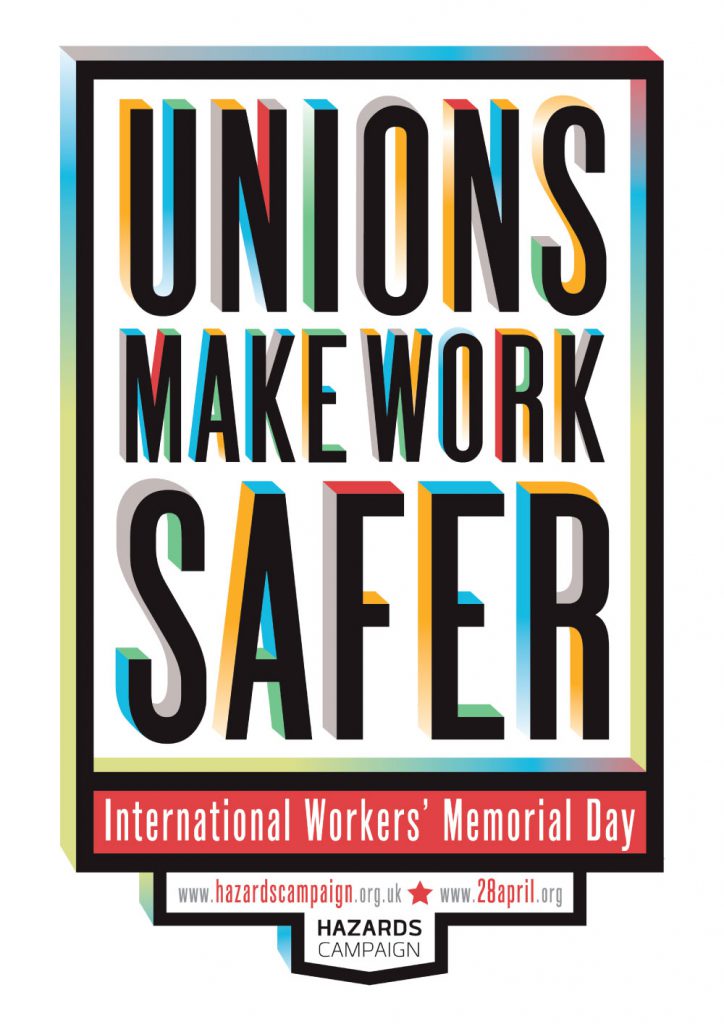
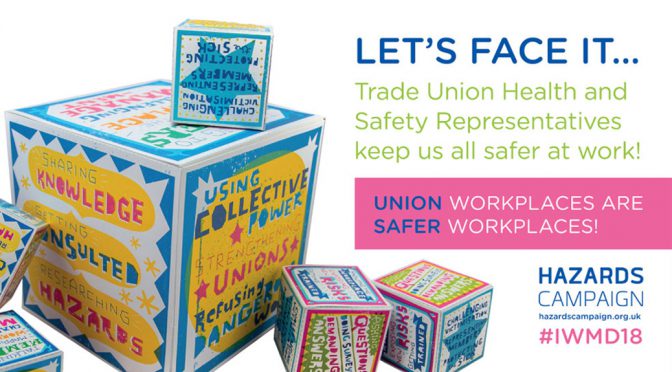
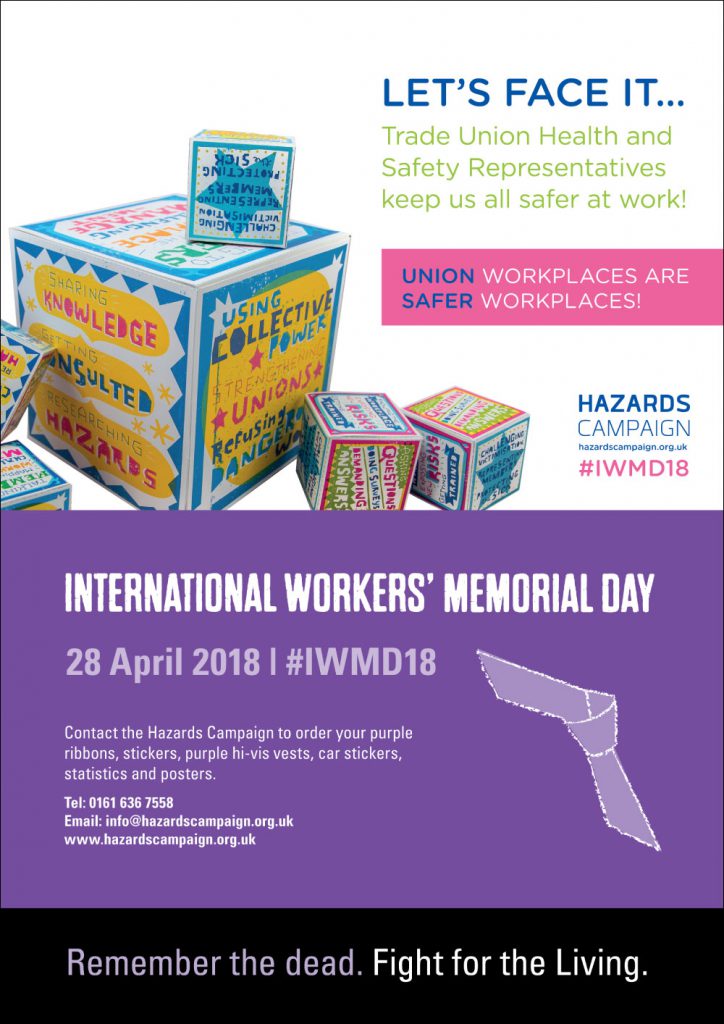
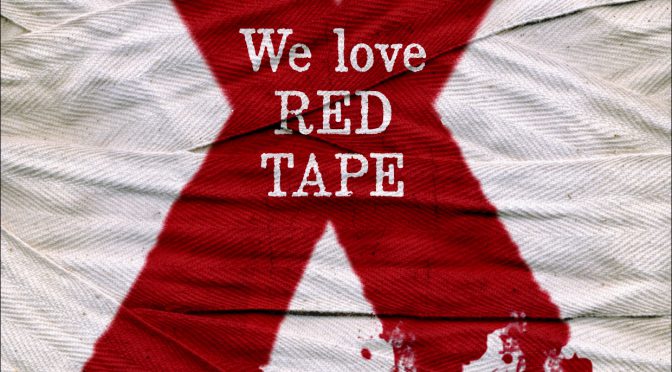
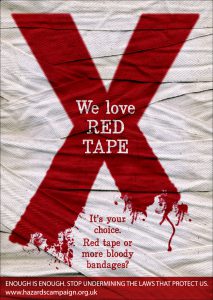
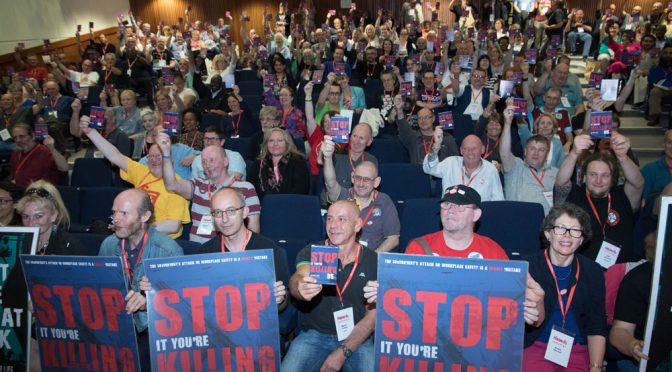
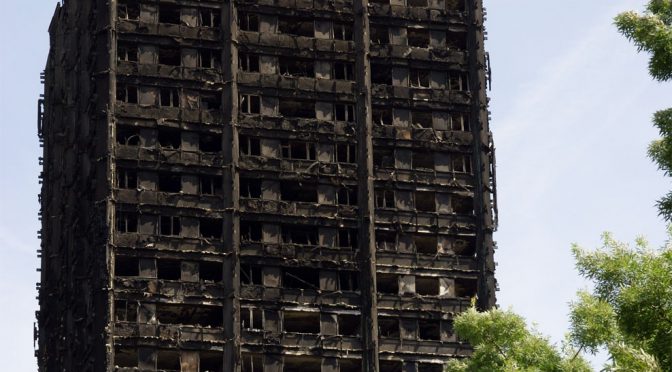

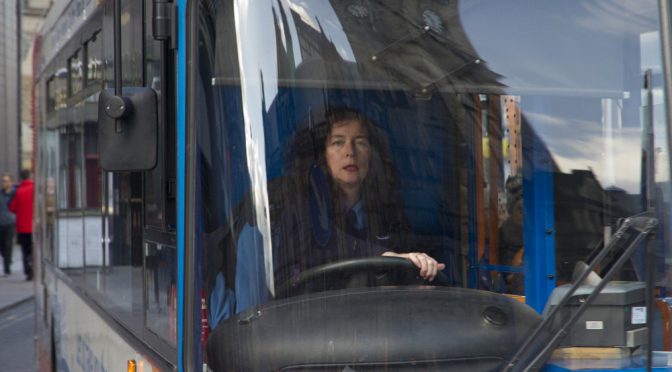
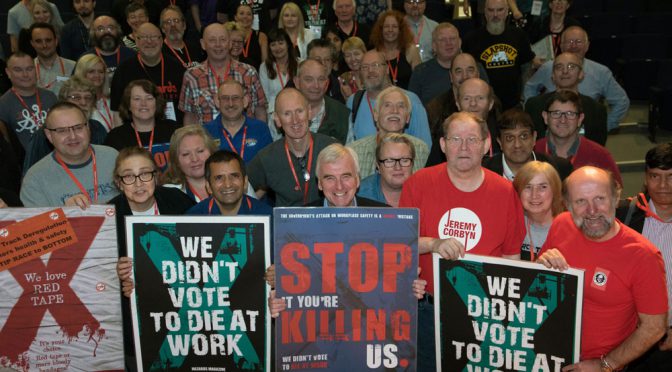
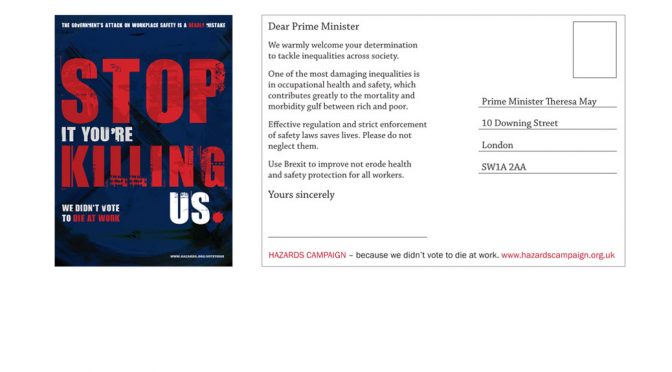
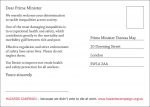 Thousands of postcards have been produced and will be freely available at the conference. Additionally an electronic postcard mailing tool has been developed so you can
Thousands of postcards have been produced and will be freely available at the conference. Additionally an electronic postcard mailing tool has been developed so you can 